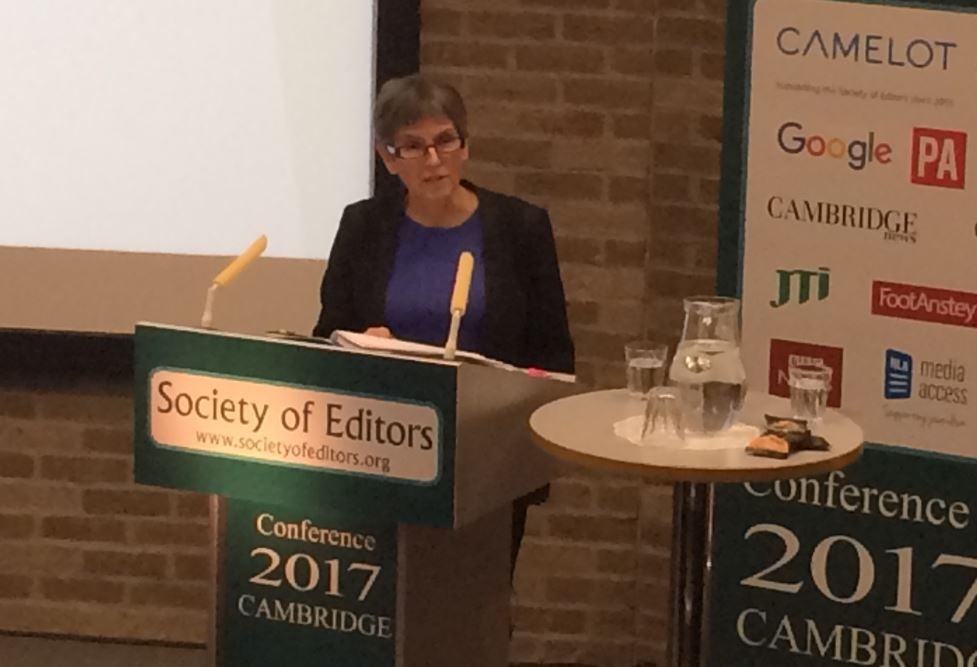
Met police commissioner Cressida Dick struck a conciliatory tone today as she told editors that she wants to “stop the fighting” between the police and the press.
But she said she would not apologise for Operation Elveden, which saw 33 journalists arrested and/or charged (many in dawn raids) but none convicted. Some 34 newspaper sources were convicted of accepting payments for stories under Elveden, many of whom were serving police officers.
Journalists have also complained about a lack of transparency at police forces around the country in recent years. Relations have not been helped by the fact that prior to the Press Gazette Save Our Sources campaign of 2015 police forces made widespread use of secret telecoms surveillance powers to find lawful journalistic sources.
On Elveden, Dick told the Society of Editors conference: “Corrupt police officers and other corrupt officials were locked up. They were taking money for information and from my point of view that’s a good result.”
She said: “I ask now that we try to move on, that we have clarity and that we have learned lessons on all sides.”
Saying that she would be “transparent” in her relationship with the press, she said one of her concerns was a police culture that was treating relationships with journalists as the same as relationships with criminals.
“I think that sends out the wrong message,” she said. “You have my word that won’t be happening in the Met.”
She said she believed the press was an “absolutely essential component of [the police’s] relationship with the public”.
“Everyday we see multiple crimes solved because of media attention and that’s just one reason why the relationship is so important,” she said.
Dick also promised some “small practical steps” that she hoped would reflect “positive intent” in building relationships between the press and police.
These included at least one media training exercise a year for police, a senior officer at an industry event every year and a pledge to give NCTJ-qualified journalism trainees in London the chance to join police on a night shift.
In return, Dick asked journalists to respect officers and “help mobilise readers” in looking at how crime could be prevented.
She told editors: “Make sure all your reporters know what their responsibility is to safeguarding the most vulnerable [in society], even above getting a story.”
She added: “I do ask you to continue holding us to account. The public deserve that, that’s your job.”
She said she would be giving police officers the message to “not be afraid, get out there and do it” when it came to talking with the press.
Pressed by Press Gazette on what assurances she could give that action would be taken where officers don’t engage with the media, Dick said: “We do have a hand tied behind our back because we have to uphold the law.”
Dick also said local London newspapers had been closing at a “worrying rate”, adding: “I think that’s sad for our communities and of course devastating for the people employed in journalism there.”
Email pged@pressgazette.co.uk to point out mistakes, provide story tips or send in a letter for publication on our "Letters Page" blog
